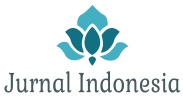Jakarta (ANTARA) – Indonesia’s efforts to bring about a rural transformation with the help of digitalization were highlighted during a recent meeting between the Agriculture Minister and the director general of the Food and Agriculture Organization (FAO).
The meeting between Minister Syahrul Yasin Limpo and FAO director general Qu Dongyu took place on the sidelines of the G20 Agriculture Ministerial Meeting in Jimbaran, Bali, on Tuesday.
In the current Industry 4.0 era, agricultural activities no longer rely on manual labor, but combine mechanization with digital technology, which can make agricultural cultivation businesses more precise, Minister Limpo said, according to a press release received from FAO Indonesia here on Wednesday.
Related news: Indonesia collaborates with int’l partners to control FMD transmission
Meanwhile, Qu reaffirmed his support for Indonesia’s efforts to develop a national e-agriculture strategy, including guidance on agriculture data integrity in the use of geospatial information.
“Digitalization plays an important role in accelerating progress towards achieving the sustainable development goals by diversifying incomes and unlocking on-farm and off-farm employment and business opportunities, especially for the new generation of farmers and young people,” Qu said.
According to the FAO, digitalization encompasses all stages of agrifood systems, including food production, distribution, trade, processing, and consumption.
Indonesia is currently putting all its efforts into transforming rural areas through digitalization that can ease smallholders’ integration into markets to foster sustainable income and improve livelihoods, it said.
Related news: FAO, West Java Government to ensure freshwater fish sustainability
The FAO director general praised the establishment of Indonesia’s Agriculture Control Room (Agriculture War Room), which uses advanced digital technologies to improve data and evidence-based decision-making.
During the meeting, Minister Limpo shared his views on the Ministry of Agriculture’s cooperation with the FAO in the animal health sector. The cooperation is focused on the One Health approach to addressing emerging infectious diseases (EID) and antimicrobial resistance (AMR).
Limpo lauded the FAO’s quick response in providing technical support for tackling the lumpy skin disease (LSD) outbreak in Sumatra province early this year, followed by the outbreak of the foot-and-mouth Disease (FMD) in almost 34 provinces.
He also thanked the FAO for its timely action in assisting farmers in East Sumba who have been battling a locust outbreak, which has affected most green leaves and damaged corn, rice, and vegetable crops, thereby causing severe food insecurity.
During the meeting, Qu thanked Indonesia for its longstanding collaboration with the FAO on sustainably transforming agrifood systems.
Related news: FAO presses for implementing One Health to prevent zoonotic diseases
He expressed the hope that Indonesia’s prominent role in the Southeast Asian region will help bring the importance of agrifood system transformation into the limelight as a regional priority.
Indonesia became a member of the FAO in 1948, and an FAO representation office was established in the country in 1978. Collaboration between the FAO and Indonesia across the food and agricultural sectors, including in fisheries and forestry, has strengthened over the last several decades.
So far, more than 650 projects and programs have been implemented by the FAO across Indonesia with the assistance of more than 1,600 experts and consultants, both national and international.
Related news: Agriculture Ministry, FAO conduct food loss study in Indonesia
Related news: Indonesia holds bioinformatics training for ASEAN lab personnel


